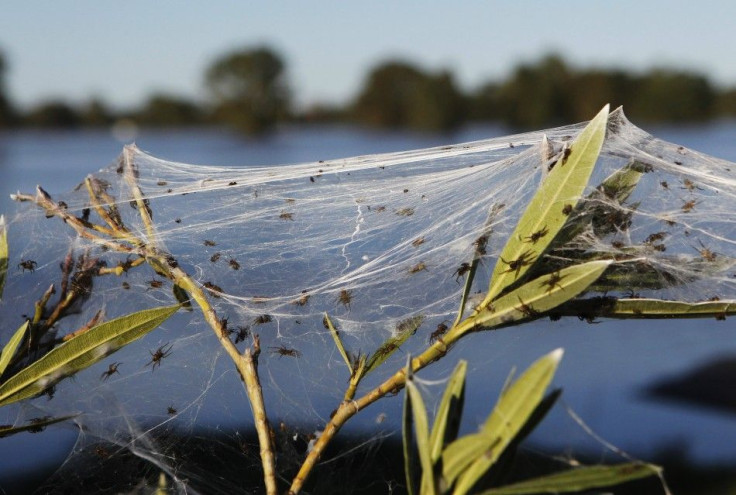Climate Change Is Moving Spiders Towards Northern Europe And Into Denmark, Study Finds

In ancient China, spiders were considered to be a sign of good luck and fortunes to come. If that's true, some of the latest signs of climate change may actually be good news for Denmark since more and more types of spiders are being found all over the country.
Spiders that are native to southern European countries have been making their way north to Denmark, prompted by the warming and more hospitable climate there, according to reports Thursday.
“We see more species coming to Denmark every year,” Kent Olsen, a researcher at the Natural History Museum in Aarhus, said. “Many are coming from the south and some from the east. They are species common in the rest of Europe that can now live in Denmark because of climate change.”
But Danes frightened by spiders shouldn't fret since more than 99 percent are harmless. Of the 35,000 known spider species in the world, just a few have been found to be dangerous to humans and only 27 have been known to cause deaths to humans. There are around 500 species of spiders in Denmark and most of them don’t even have the ability to bite through human skin.
Spiders aren’t the only creatures moving for greener or more tolerable pastures. Humans, too, have been known to move in reaction to global warming.
Climate change has been blamed, at least in part, on the migrant flows currently seen headed to Europe (though, of course, other considerations like the civil war in Syria are a big driver) and scientists have warned that the effects of climate change will lead to so-called “climate refugees,” as people are forced from their homes by phenomena like drought and rising sea levels.
But, there’s bad news for anyone who wants the world to respond to climate change in time to avoid exacerbating these problems. The world has already passed the "permanent" carbon dioxide level (400 parts per million) that scientists have warned about, meaning that keeping global temperatures from rising above what policymakers say is a safe spot is increasingly unlikely.
© Copyright IBTimes 2024. All rights reserved.






















